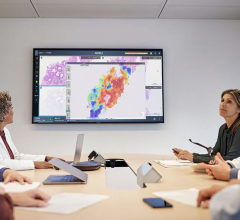December 28, 2011 — Mirada Medical will demonstrate their software magnetic resonance/positron emission tomography (MR/PET) technology “live” on any site’s data at RSNA 2011.
The company asserts that MR/PET is now available to anyone wishing to combine the unique benefits of these two powerful imaging technologies. To support that vision, Mirada has developed a software MR/PET solution based on its validated deformable registration technology.
The demonstration will occur in real time, using imaging data brought by attendees from around the world. The data can be from any DICOM compliant MR, PET, or PET/CT system, regardless of the manufacturer; it must be anonymized and compliant for this use under protected health information standards.
Mirada will also showcase Casemeeting, its workflow solution for tumor board meetings. These constitute an IT headache for the radiologist, who is often expected to present and review multiple detailed cancer cases in a very short period of time. Making all the images available at the meeting can be problematic and this problem is compounded by the need to organize them into a cohesive presentation. Having all the software tools available to rapidly show and discuss detailed findings for each case was until now nearly impossible.
Casemeeting however makes easy work of preparing for and presenting at tumor board meetings. Automatically, it turns the radiologist’s key imaging into slides and sorts them into a short presentation for each patient to be reviewed. The presenter can change the order or remove slides.
It also allows the presenter to press a button and instantly return live to the exact same place in the original reading software where the key image was taken; this allows the case to be reviewed in detail by the other clinicians in attendance.
Mirada will be demonstrating other applications on its XD3 technology platform, including:
- Quantitative Response Assessment, which allows the user to simultaneously read and quantify an unlimited number of studies acquired over any time period. Mirada provides native support for RECIST, PERCIST and WHO; the system can be customized to support customer-specific treatment response analysis protocols regardless of how many follow up studies are required.
- CT Lesion Segmentation technology allows a clinician to quickly and accurately segment a lesion in a computed tomography (CT) scan; this allows them to compare size, volume and tissue characteristics between scans. It will also support faster and more accurate RECIST type response assessment protocols.
For more information: www.mirada-medical.com


 July 31, 2024
July 31, 2024 








